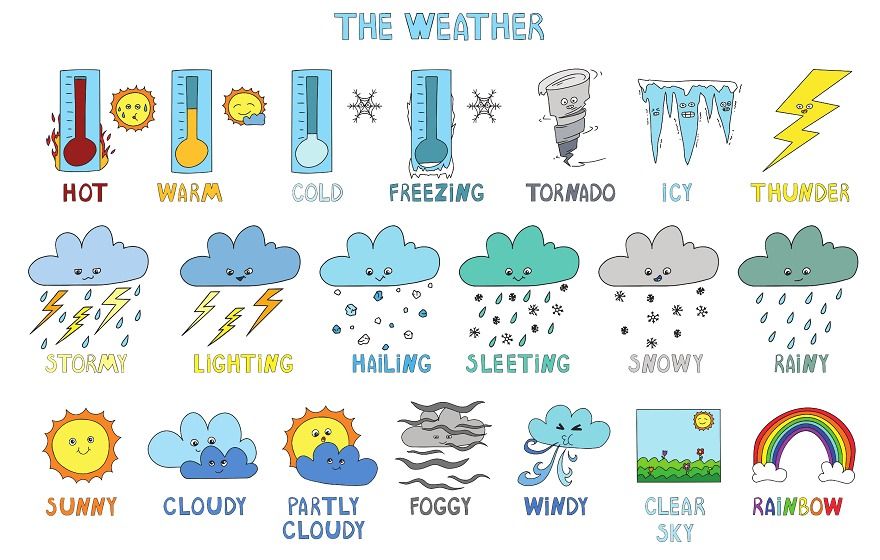Living in Perth means experiencing hot summers, occasional coastal humidity, and dry inland conditions. While this climate is part of the city’s charm, it also presents unique challenges for homeowners—especially when it comes to air conditioning systems. The average air conditioner is designed to perform under a range of conditions, but Perth’s extremes can significantly affect its efficiency, performance, and lifespan. In this blog, we’ll explore how Perth’s environment impacts your AC and provide actionable tips to protect your investment.
Understanding Perth’s Unique Climate
Perth sits on the southwest coast of Australia and is known for its Mediterranean-like climate. Summers are long and hot, with average temperatures regularly reaching the high 30s, while winters are mild and relatively dry. However, the city’s proximity to the coast means it also experiences periods of high humidity, salty air, and even dust storms depending on the season and wind direction. These diverse elements combine to create a challenging environment for any mechanical system—especially air conditioners, which run frequently during peak heat.
Impact of Heatwaves on AC Components
Heatwaves in Perth are intense and can last for several days. When temperatures soar, air conditioners are often running non-stop. This continuous operation puts stress on the compressor, fan motors, and refrigerant systems. As a result, parts may overheat, wear out faster, and break down unexpectedly. The increased power usage also places a burden on capacitors and electrical components, which can fail prematurely if not regularly serviced.
Additionally, operating in high ambient temperatures reduces overall efficiency. The hotter the outside temperature, the harder the outdoor unit has to work to release heat. This creates a cycle of stress that not only reduces energy efficiency but can also shorten the overall system lifespan.
Salt Air and Coastal Corrosion
Living near the coast has its perks, but salty air isn’t one of them when it comes to your AC. Salt particles carried by the sea breeze can settle on outdoor units and begin to corrode the metal casing, coils, and electrical components. This corrosion not only weakens the structure but also reduces thermal efficiency, making your system work harder and shortening its lifespan.
Coastal corrosion is often subtle in the beginning. It starts with minor pitting or rust, but over time, it can lead to significant damage to coil fins and other exposed parts. Units not cleaned or treated for corrosion resistance can fail significantly earlier than expected.
Dust and Bushfire Residue: Hidden AC Killers
Perth’s dry seasons often bring high winds and dust, particularly from inland areas. Additionally, bushfire smoke can carry fine particles that infiltrate AC units and clog air filters and coils. This accumulation restricts airflow, reduces cooling performance, and causes the system to overheat.
These tiny particles can also make their way into the ductwork and fan systems, increasing indoor air pollution and putting additional strain on the motor and fan blades. Many homeowners don’t realize their AC is being suffocated by environmental debris until it stops cooling effectively or shuts down altogether.
Humidity and Its Effects on Internal Parts
Humidity levels, especially during summer thunderstorms or in coastal suburbs, can increase moisture buildup inside your air conditioning unit. Excess moisture fosters mould and mildew growth in ducts and internal coils, which not only affects performance but can also pose health risks. Electrical components exposed to frequent condensation are more likely to short-circuit or corrode.
Another common issue is drainage failure. Condensation that builds up during high-humidity days needs to drain efficiently. If the drain lines clog or the drain pan overflows, it could lead to internal water damage, rusting, or microbial growth.
Common Signs of Climate-Related Wear
Perth’s climate may already be affecting your AC without you realising it. Here are some signs to watch for:
Reduced cooling efficiency or warm air from vents
Rust or discoloration on the outdoor unit
Frequent cycling or shutting down during peak usage
Higher electricity bills despite regular usage
Musty or burnt smells when the unit is on
These symptoms often point to damage caused by prolonged exposure to Perth’s climate conditions. Identifying them early can prevent costly repairs or unexpected breakdowns.
How to Extend the Lifespan of Your Air Conditioner in Perth
While you can’t control the weather, you can certainly take proactive steps to protect your AC unit from environmental damage.
Regular Professional Servicing
Schedule at least one annual service (preferably before summer) to inspect and clean components that are most affected by climate.Use Weatherproof Covers
When not in use during winter, cover your outdoor unit with a breathable, water-resistant cover.Install Anti-Corrosion Coatings
Especially if you live close to the beach, consider applying protective coatings to metal components.Clean or Replace Filters Frequently
This is especially important during dusty months or if you’ve had recent bushfires in your area.Keep the Outdoor Unit Elevated and Clear
Avoid installing AC units directly on the ground and ensure adequate airflow around them.Use a Surge Protector
Protects your unit from electrical fluctuations common during storms.Inspect and Clean the Drainage System
Prevent internal moisture damage by ensuring your AC drains properly, especially during humid days.Upgrade Insulation
Proper home insulation reduces the load on your AC, helping it work more efficiently and reducing wear.
When to Repair vs. When to Replace
Deciding whether to repair or replace your air conditioner can be tricky, especially in a climate like Perth’s. Here’s a simple guideline:
Repair if the unit is under 8 years old, and the issues are minor (e.g., clogged filters, worn-out capacitors).
Replace if the unit is over 10–12 years old and has experienced multiple climate-related failures (like rust, compressor burnout, or constant refrigerant leaks).
Modern air conditioners are not only more efficient but are also built with features that improve resistance to corrosion, heat, and dust. Replacing an outdated unit with a newer, climate-ready model can save you money in the long run.
Conclusion
Perth’s climate isn’t always friendly to air conditioning systems, but with proper care and awareness, you can significantly extend the lifespan of your unit. Regular maintenance, proactive protection from the elements, and timely upgrades are key to keeping your system running smoothly all year long. Whether you’re battling heatwaves, coastal air, or bushfire debris, understanding these challenges ensures your air conditioner remains a reliable part of your home.

